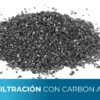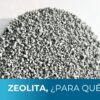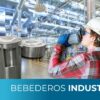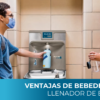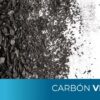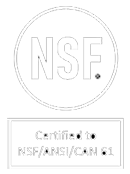Water treatment equipment and supplies
Equipment and supplies for water filtration and pufication in the food and beverage industry
Water is essential for production, cleaning, packaging in the food and beverage industry, and is an important ingredient in beverage and food processing. In addition, cleaning, packaging and as an ingredient, to ensure that the final products are safe for human consumption and have a taste and appearance that the quality requires. We can guide you with water treatment for food and beverage preparation.
In this industry, water is used in several processes, including:
- In production: Water is used in the processing of food and beverages, such as washing and rinsing, cooling and cooking of food products.
- In cleaning: Water is used to clean and disinfect facilities, equipment and utensils used in food and beverage production.
- In packaging: Purified water is used to cool the products before packaging and to filter the regulating water for cleaning bottles or containers used in the process.
- As an ingredient: Water is a main ingredient for brewing beer, juices, soft drinks (carbonated beverages), liquors, distillates, broths, soups, purees….
- Beer industry: Purified water is used in brewing to ensure that the taste and quality of the beer is optimal.
- Filtration and discoloration of oils and vinegars: Remove sediments from the finished product, lower the color of oils and vinegars with powdered activated wood charcoal.
Filtered or purified water is used in the preparation of food and beverages to ensure that the final products are safe and meet the relevant standards and regulations.
Water treatment and filtration for the food and beverage industry (food industry)
Water is an essential element of the food industry. It is used for food preparation, disinfection, washing and as a raw material for beverage production. Good quality treated water is necessary to meet food processing standards and requirements and prevent illness.
A proper treatment and disinfection strategy will help to comply with regulations and avoid fines, while ensuring that products are safe for human or animal consumption. Good water quality also improves plant efficiency by preventing corrosion of equipment or damage caused by hard minerals present in groundwater or surface water, such as rivers, lakes, etc. Therefore, it is important to select the right process that improves product quality by effectively removing impurities (microorganisms) present in the raw water sources used for production, such as municipal water supplies, etc.
Selecting the right process is critical.
Selecting the right treatment and disinfection strategy is critical to achieving compliance with all federal, state and local regulations.
Some processes such as washing and rinsing are not required to meet a high water quality, most of the time it is only necessary that it has gone through disinfection and disc or deep bed filtration. Other processes where water is part of the food and beverage ingredients require more advanced treatment processes such as ion exchange softening or reverse osmosis demineralization.
Selecting the right water treatment technology is as important as selecting the right water filtration or purification system. A physicochemical analysis of the water can help us determine the water treatment steps required to reach the necessary quality.
What are the consequences of non-compliance?
By following these tips and strategies, you can ensure that your food and beverage products comply with all government regulations, and avoid problems with the authorities.
Water used for drinking or food preparation is often referred to as “drinking water,” but it is important to understand the difference between the two. Drinking water must be safe, pure and clean.
The standards applicable in Mexico for water purification and treatment are as follows:
NOM-127-SSA1-1994 “Environmental health, water for human use and consumption-permissible quality limits and treatments to which water must be subjected for its potabilization”. This standard is the responsibility of the authority or agency that provides municipal water, but there are places that require extra treatment by the user to comply, especially if the water comes from surface sources such as wells, lakes or rivers.
NOM-201-SSA1-2015 “Products and services. Water and ice for human consumption, packaged and in bulk. Sanitary specifications”. For preparation and packaging of water and ice for human consumption.
NOM-251-SSA1-2009 “Hygiene practices for the processing of food, beverages or food supplements”. This standard is focused on compliance with the preparation process, and in some sections it talks about water.
It must not contain bacteria, viruses, parasites or chemicals such as lead or mercury. The EPA sets drinking water quality standards to protect public health from these contaminants. These standards only apply to public systems that supply water directly to households; they also apply to private wells (domestic or industrial) unless those wells are connected to a public system through sewer lines. If you have doubts about your private well, you can have it tested by a certified laboratory.
Food grade water specifically refers to purified liquids used during food processing operations, including beverage manufacturers (such as soft drink companies), dairy farms where milk is pasteurized prior to shipment across national borders, poultry or beef trails where poultry or beef is washed before processing begins, etc….
Reusing and recycling water will save money, reduce environmental impact, reduce your footprint and improve the environment.
Water is a limited resource. Reusing and recycling water can save money, reduce your environmental impact, reduce your footprint and improve the environment. The use of water in food and beverage production is extensive: it is estimated that more than 70% of all wastewater generated by industrial processes is returned to the same system as raw material for new products. That is why also the wastewater from the preparation and washing process can be reused with a wastewater treatment plant.
Granular activated carbon is a widely used technique for the removal of organic compounds in drinking water treatment plants.
Granular activated carbon (GAC) is a widely used technique for the removal of organic compounds in drinking water treatment plants. It is also widely used in the food and beverage industry, as well as in other industrial processes where it can be regenerated, making it an economical option.
Unlike synthetic adsorbents, GAC does not require expensive chemicals and catalysts during operation. Instead, mechanical forces such as pressure, temperature and flow rates are used to remove contaminants from wastewater streams. This makes granular activated carbon an ideal choice for use in many different types of facilities where there may be space constraints or limited budgets available for capital expenditures on new equipment purchases.
Water is an essential part of the food industry.
It is used for the preparation, disinfection and washing of utensils and food, purified water for beverages, juices, beer, soft drinks, liquors, distillates, for disinfection and cleaning.
Water is an essential part of the food industry, used for the preparation, disinfection and washing of utensils and food products. Purified water for beverages, juices, beer, soft drinks and liquors is also necessary for its quality properties. In addition, there are other uses, such as heating or cooling processes or equipment cleaning, which require pure quality water.
Cleaning and disinfection of equipment, utensils, pots and pans for food and beverage preparation
Water can be used for cleaning equipment, plant operations or equipment maintenance (such as disinfection), refrigeration systems, steam generation, pans, autoclaves and other utensils. Proper water treatment will help you comply with regulations and avoid fines, while ensuring that your products meet consumers’ expectations for purity and safety.
It is important to have an appropriate strategy for managing all aspects of your facility’s use so that you can optimize its use and minimize operating costs at every step of the process, from treatment to disposal or reuse/recycling options available at each processing stage within our facility’s operating cycle.
Use the safest technologies available to reduce your risks and increase your profits without compromising the efficiency of your manufacturing processes.
In conclusion
Water is an essential element in the food industry, so it is important that you know how to treat and disinfect it correctly. The right treatment and disinfection strategy will help you meet quality standards while keeping workers healthy and happy on the job. Good quality treated water is necessary to meet food processing standards and requirements to prevent illness from contaminated food.

